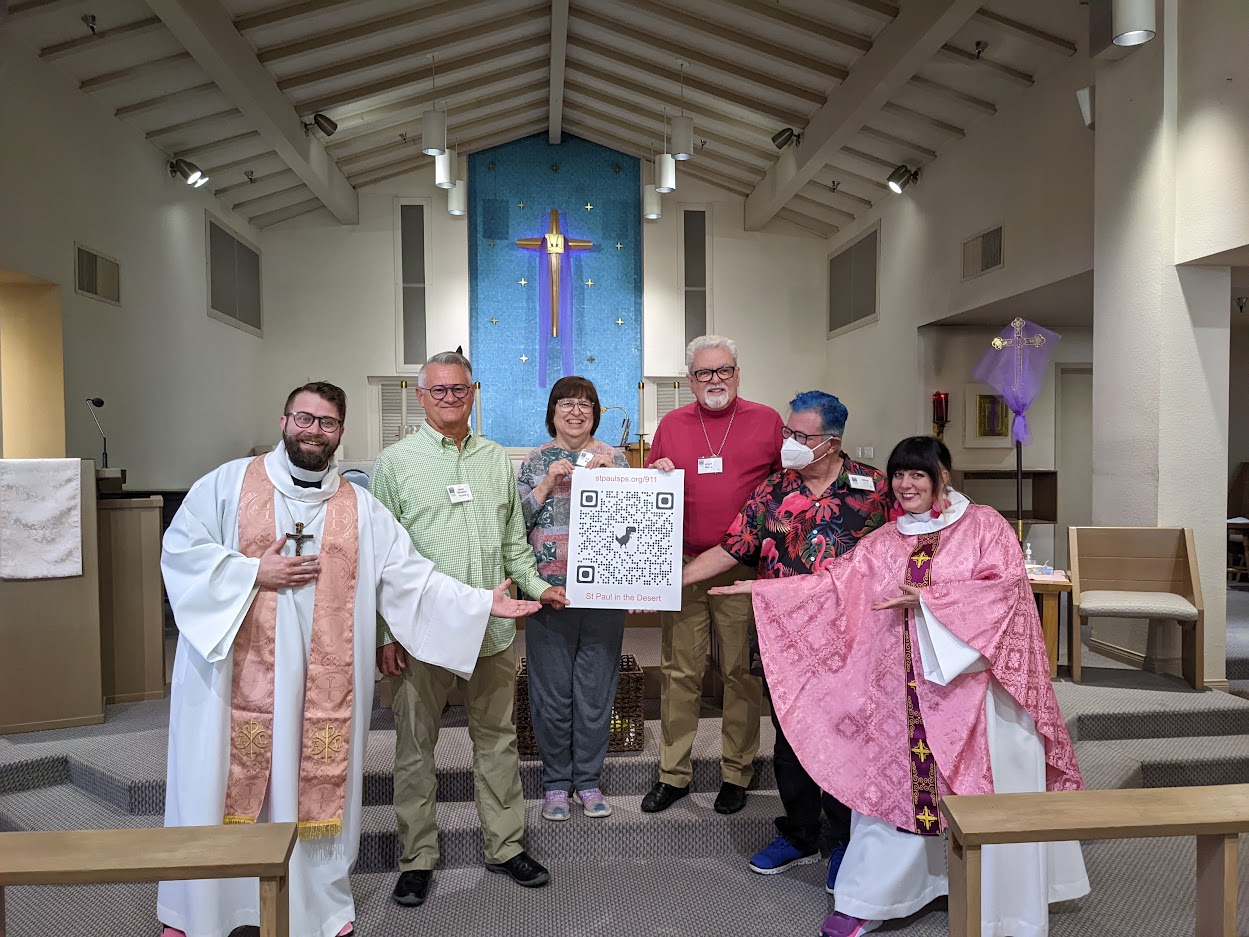Committed to Keeping People Safe

Sacred spaces have always been considered a place of safety…
“But there is an alternate history that also holds true…Whether we speak of Archbishop Thomas Beckett or the Tree of Life Synagogue, whether we remember the massacre of the Emanuel Nine or Bishop Gene Robinson having to wear a bulletproof vest at his consecration, we are more than well aware that assaults can happen in sacred spaces,” said the Rev. Dan Kline, Co-Rector of St. Paul-in-the-Desert.
On Sunday, March 18, 2023, St. Paul-in-the-Desert, Palm Springs began a new era of safety for their community when their Emergency Task Force announced to an overjoyed congregation the reception of a $200,000 security grant from the State of California–the maximum allotment available in the grant.
St. Paul-in-the-Desert formed their Emergency Task Force in 2022, shortly after the horrific shooting at St. Stephen’s Episcopal Church in Vestavia Hills, Alabama. Steve Moore, the co-author of the grant, said, “Our heads were spinning when we thought of the costs.”
The Task Force reached out to the Diocesan Safety Officer, Jeff Green, for help, “I’m always happy to help our churches make the connections they need to keep our people safe.” Green provided the Task Force with useful grant contacts, education resources, and a template for a digital emergency plan.
St. Paul-in-the-Desert plans to upgrade its lighting, video surveillance coverage, and ‘harden’ the doors and windows to improve safety and security. Technology will be installed to aid in the management of the new security updates around the campus, and a public notification system will be put in place for quick, clear communications during an emergency.
The State of California offered $47,500,000 to nonprofits throughout its 2022-2023 grant cycle. The 2023-2024 grant window becomes available in late Fall.
Green said, “The grant application can be a long process with a lot of moving parts. It might take your congregation two grant cycles to complete the assessments and paperwork to apply successfully. So, it’s a good idea to start today!” You can contact Jeff at jgreen@edsd.org for more information about this grant opportunity and keeping your church safe.
Disasters and emergencies happen, and, in many cases, they are unpreventable. But safety is more than prepping for a fire, earthquake, or an act of violence; safety in the church is the care and love for people. Keeping people safe means taking real and sometimes difficult actions to protect them.
Sacred spaces are places of shelter, security, and safety–places of renewal, restoration, and salvation. But there are more times than we can count when people in sacred spaces have inflicted harm physically, emotionally, or spiritually.
Rev. Kline shared a personal story about a time when he walked away from the evangelical church and his ministry because of story after story of sexual abuse by people in church leadership.
“We, as the clergy, cannot guarantee something unsafe will never happen here. I wish we could. But what we can guarantee is that we will do everything in our power to prevent the likelihood of something unsafe from ever happening. And if you ever try to do something here – to one of our children, to an aging person, or anyone – we will love you by working with the authorities to put you in jail,” said Rev. Kline to resounding applause.
The people of St. Paul-in-the-Desert have implemented the Easter Safe Church Challenge. At. St. Paul, every member of staff, and every volunteer–from ushers to office workers– will complete the Safe Church-Safe Communities training by Palm Sunday or no longer serve. Everyone is welcome to worship at St. Paul-in-the-Desert, but if you want to volunteer or lead a ministry, Safe Church-Safe Communities certification is required.
If you are interested in joining St. Paul-in-the-Desert for the Easter Safe Church Challenge, you can begin the process here. All church employees, all youth workers, and many volunteers are required to take Safe Church – Safe Communities, per Diocesan policy. All are welcome and encouraged to complete the training. It is online and offered at no cost.
In the Episcopal Diocese of San Diego, we are committed to keeping people safe.
“If you are a volunteer, you are required to complete this course to continue serving in a volunteer capacity. If you are not a volunteer, we still welcome you to take it. You can worship here if you do not complete the course. But you cannot volunteer. We love you, and we love the safety of this church too much to let you not take it.” said Rev. Kline.
Special thanks to the St. Paul-in-the-Desert Emergency Task Force members Steve Moore, Derek ‘Eduardo’ Stanfill, Alex Christensen, Ray Tacket, and John Raposa for their leadership and dedication to keeping our Church and our people safe.